Yeasayer - Interview
by Mark Rowland
published: 29 / 4 / 2010
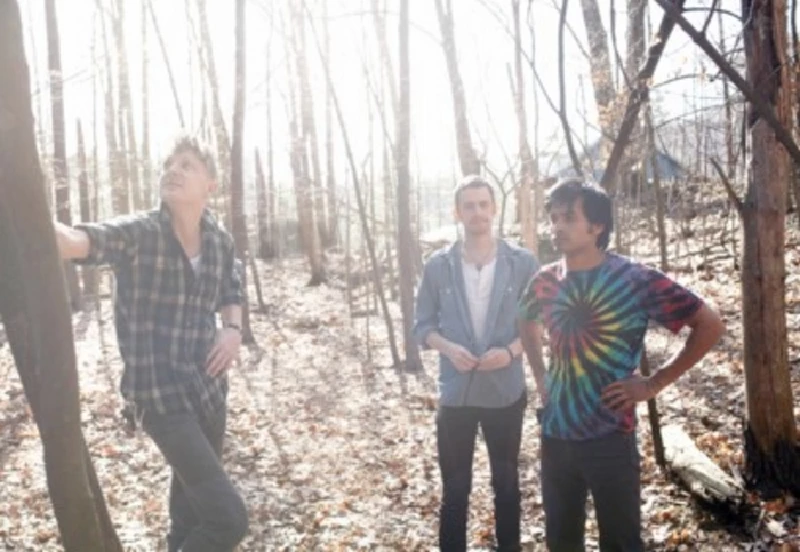
intro
Mark Rowland speaks to Ira Wolf Tuton, the bassist with New York-based art rock band Yeasayer, about his band's acclaimed second album 'Odd Blood' and how it has both translated and also developed on stage
US indie rock is going through a very creative period at the moment. As a loose movement, combining experimentalism and art concepts with accessible hooks and melodies, it has more in common with late-70's and early 80's post-punk than the post–punk homage bands that dominated both the indie and mainstream a few years ago. This period of heightened creativity has produced some fantastic albums over the past couple of years, primarily from bands that have been active for some time, and who have only recently managed to create more accessible albums without any particular compromise of their sound. Since January 2009, we have seen albums by Animal Collective, Dirty Projectors, Grizzly Bear, and Beach House receive critical acclaim and find a bigger audience than they ever have previously. All of these albums have made their way onto ‘Album of the Year’ lists. Back in February, New York-based art rock band Yeasayer released ‘Odd Blood’, their second album, and a natural, more pop-oriented progression from their world music and electronica-influenced debut, ‘All Hour Cymbals’. The strange sounds, unorthodox arrangements and broad pallet of influences are still there, but added to this are prominent vocals, hooky choruses and a funkiness that has led to the album and its singles being picked up by UK radio and receiving wide-spread critical acclaim. The band moved from independent label We Are Free to larger indie Secretly Canadian before the recording of the album, which took place at Jersville studios in Woodstock. The band spent the best part of 2009 working on the album, taking their time over the arrangement of each song and experimenting with different sounds, equipment and recording techniques. Though the album has a prominent electronic and dance music influence, many of the sounds on the album were developed using traditional instruments and the creative use of pedals and found sounds. The more poppy arrangements, with the vocals pushed to the fore, reveals just how strong the band members’ voices are. Although keyboardist/vocalist Chris Keating performs most of the lead vocal parts, guitarist/keyboardist Anand Wilder and bass player Ira Wolf Tuton clearly are vocalists in their own right (Keating and Wilder actually performed in a barbershop quartet together before performing Yeasayer). The band are currently undertaking an extensive tour to promote the album, which looks likely to span most of the year. Tuton spoke on the phone to Pennyblackmusic while the band was in Amsterdam about the making of the album and the band’s ever changing approach to their existing set of songs. PB: 'Odd Blood' is a clear progression from your previous album, 'All Hour Cymbals', although perhaps not the giant leap sonically that some have labelled it. Did you have a strong vision of what you wanted to do when you went into the studio? IT: We definitely knew what we wanted to do. We wanted to have more concise songs and surround ourselves with a different kind of popular music format, really bringing the vocals to the fore, having really sub-activating bass and percussion that didn’t really reference drum circles so much, a more of a hard-hitting, dance floor beat. It’s interesting talking to people because I feel like there’s a mixed reaction. Obviously, for me, it’s not a departure with this album because we lived this; we lived through the transition that nobody sees and we lived through the process. There definitely is different camps as to whether it’s a totally different band or people such as yourself see it as a progression of the same band. That’s very much how I see it. Woah, I’m looking at a barge go by, with a wedding party on board. That looks like a nice pretty cake. PB: You moved to a larger label and had the experience of recording the first album when you went into the studio this time around. How different was your approach to the record in the light of this? IT: It was very different. At a very base level, we were able to do this as a full time job. And financially we were able to take advantage of the experience we’ve gained over the last few years, both in the equipment we wanted to use, the process, the time frame. We were able to rent a house and build our own work studio. It feels like the past few months has been – as it should always be, if you’re moving in a different direction – sort of a trial by fire. We’ve slowly been developing our knowledge of how we record, how we work together, what tools we have at our disposal, what to do over the top, and we continue to learn, because it’s a fast-changing world, technology, and I don’t want to be stuck getting too romantic about any part of it, because then you tend to stop listening. PB: How do you approach the arrangement of your songs? Do you have a clear idea of the sounds and instruments you will use from the outset, or is it more a process of trial and error? IT: It’s a little bit of column A and a little bit of column B. Tone is really, really important to us and part of the writing process for us when we’re all in the studio together is the production side of it, when we expand the different tones for each song, deciding what that hi hat tone is going to be, or kick drum tone going to be, even if it’s not actually made by a hi hat or a kick drum; it might be made by a spray can being miked. But it’s all about trying to figure out these tone collages from track to track and we use a lot of layers. We definitely gained a lot more separation on this record than we did on the first; the first one was just kind of a wall of sound. On this one we really wanted to have separate tones jumping out at you at different points. It still is our challenge to still continually back up so that the listener and also ourselves are able to perceive certain individual parts, as opposed to being hit with an onslaught of sonic ideas. Although that has its place too; that could be the next album. PB: You create some very interesting sounds using fairly traditional instruments on the record, particularly the bassline of ‘Ambling Alp’ which sounds more like a flute than a bassline. How do you create those sounds? IT: I put it through a variety of pedals. I mean, live I use a harmonic octave generator, which you can tweak in all kinds of different ways. I have six different tones that are all very different from one another. Some sound more like an organ, some sound more like a French horn, some sound more like a flute, and then in the studio we ran it through that as well as some Moogerfrooger stuff, some Murf stuff, I believe, and then we might have put it through a – what are they called? An echo chamber, and tweaked that out. But that was just kind of running through all these things and tweaking knobs, plugging it in one thing, deciding it was the wrong direction, plugging it into another thing and slowly tweaking the knobs. When you get the right tone, it’s just going for it and believing it – straight away, recording it. Because you could spend forever on it, you could spend all day trying to get a perfect tone. For us, because there are so many different elements, it’s important to make sure that once you get to a point where one of us, or all of us says: ‘that’s cool’, we’ve got to get it down. At the end of the day and at the end of the process, we might trash it; we might feel differently about it. But it’s important that we get it down. PB: Although perhaps not as dense as some of the moments on ‘All Hour Cymbals’, ‘Odd Blood’ sounds very much like a studio construct. How difficult is it to translate live, and to what extent does the recording process and the live shows inform each other? IT: I think it definitely sounds like a studio record, but when we were recording it, we were really thinking about what sort of music we really wanted to play live for the next year or two, and how we would want to play live. And the kind of music with a heavy drum beat, that’s kind of danceable, that lends itself a lot more to being exciting night after night. To get up onstage in front of people and lose it. There’s a challenge to recreate it live, but we’re not trying to play the album note for note. You have to harness a very different kind of energy. So the arrangements changed, and the arrangements continue to change right now. This is pretty early on in touring the album, so there are still things we’re tweaking here and there, and we’re still working it out, but that’s the next phase; that’s the next way to keep rejuvenating yourself and remain excited about the material. As we do this, for the next year of two, I think that’ll probably help us determine what we do and don’t want to do in terms of the next record; the things that we’re bored of, and the different place we are musically by the end of transforming this music over a year or two. I think that’s what definitely happened with the first record, we totally transformed all of the arrangements two years after releasing that album; we were in a very different place musically than when we had released it. PB: Would you say that tour of the first record helped form the direction of the second? IT: I think that was definitely a large part of it. When you sit on the same material for such a long time and you’re constantly trying to retranslate it into what works better live, a lot of that material, when you hear it on the record, doesn’t really sound like a bunch of guys jumping around on stage and getting really pumped. We’re not really the kind of band who just wants to stand onstage staring at their shoes. That definitely helped. When we were recording that album, we weren’t thinking about how we were going to tour on it for a couple of years. We got that album out, and then the realisation of us being a professional band kind of hit us in the face, as we toured more and more, and the more you tour, the more you learn what works live, what doesn’t work live, and what directions you want to go in, and by the time we got to the second album, we were exploring a lot more electronic stuff, and really heavy beat-driven stuff, really 90's beat-driven stuff, and dancehall stuff, and production of that nature. PB: So have any songs from the current album particularly changed while you’ve been on the road? IT: Let’s see…just trying to think of the set right now. I like what we’ve done, and almost wish we could re-record it, because we’ve turned ‘Mondegreen’ into a little bit more of a reggae tone feel, and it really translates a lot more. It kind of hits what that song was supposed to be. I guess that’s kind of an incentive to come see us live, you know. We re-recorded ‘O.N.E.’, because the original version that we were going to put on the record was a totally different version. Then we spent a bit of time away from recording, and playing live, and we started playing it in a little dancier way, and then totally re-arranged it and went back into the studio and re-recorded the whole thing. I think what was supposed to be the original version ended up being a b-side on the single release. PB: The version of ‘O.N.E’ sounds slightly different on the version on the video for the song; certain elements sound more prominent. Is that the result of the song’s live development? IT: That’s more to do with the necessary changes for a single edit, which you need for radio and TV, especially in England. We’re not really from the culture of single edits being from America, because we can never get on the radio, and the kind of stations that we can get on are not clamouring for single edits, like college radio and public radio. If anything, they want the songs to be longer. But the UK has a very strong radio and single culture that now we’re finding ourselves to start to be a part of. Being involved with our label, they asked us to do a single edit of ‘O.N.E’, so we broke it down and chopped it up in a way we thought still made sense. I think it’s still a bit of a strange idea, the whole idea of us being a radio band, because it’s so off the map from the world in which we grew up in, in the States. I guess it’s just a part of it; it’s interesting. From country to country and place to place, it’s all a matter of perspective. That changes from place to place. PB: I would imagine that some of the songs on ‘Odd Blood’ would go down very well in Europe. They have a UK/European kind of feel to them. IT: Yeah, I mean, I love touring Europe, you know! Very happy to be in Europe. We’re coming to the end of this tour, and we’ve played southern Europe. We’d never played Italy before and we’ve rarely played Spain. I would be perfectly happy playing a lot more in those countries. I don’t really find that there’s a necessity to do what every band before you did; there’s plenty of ways to make it work and plenty of ways to make a career. We’ll see; right now we’re touring out this album, and a lot of people in the UK seemed to gravitate towards it. We’ll probably alienate those same people on our next record when we don’t record a bunch of four to the floor dance-beat based songs, and we don’t recreate our pop singles. But who knows, maybe our fans will follow us, or maybe we’ll just gain a whole new crowd. PB: There’s nothing necessarily wrong with that; sometimes it’s an advantage. IT: No, there’s nothing wrong with that at all, man. I would like to think that uh…the nice thing about what we’re doing is whether we get positive or negative criticism. Some of the best criticism we’ve gotten so far has been negative, and it’s just said how we’re all over the place, or that we’re kind of amorphous. I think that’s cool; I like being that. I like being un-definable, and in a place where we can kind of do whatever we want; I want to continue to be able to do that. The only pressure that I want to feel and the only pressure that I want to embrace is the pressure from the inside, from one another. There’s none of this label pressure, or pressure to make sure…if you see people dancing to a song, feel like: ‘Man, we’ve got to write another one of those!’ PB: Speaking of singles, with the videos you’ve done for your recent singles, you’ve worked with the same company and explored similar themes. Is there some kind of thread running through them? IT: There are definitely underlying themes, I think. The guy who did the artwork on the album, who’s the guy who does our lights, Ben Phelan; he’s been with us for a while, and Radical Friend, Kirby and Julia, they did the two videos, and there’s something nice about developing artistic relationships with people who work in other fields, that are in something like a same place to where we are; trying to figure out what you’re doing, embracing new technology, and trying to push the boundaries within your own fields. Radical Friend are definitely doing that; they’re very young, they don’t have a huge resumé but what they’ve done so far I think is really impressive. It’s really enjoyable to back and forth with them, work with them and see how they interpret what we do in a visual way. It’s the same with Ben Phelan, watching him listen to our music and translate what we do. When I hear him talk about our music…I’m not that good at talking about our music, I’m not good at giving interviews, I tend to stumble over myself and I never really think about what I should say about our music; that’s not really a part of it for me. But when I hear Ben talking about it, it makes a whole lot more sense than anything I’ve ever thought about myself. He can articulate it so much better than I can. That’s a pretty enjoyable relationship to have, I think. At the end of the day, you want to push each other within the band musically, but if you can surround yourself with other people and other artists that are really pushing themselves, it’s going to be more encouraging for you to get off your ass, get off your hands and get going, and try and do something special, whether you fail or succeed, whether you end up going down in a ball of flames. At base level, you need to be surrounded by people and you’re going to push them and they’re going to push you. PB: Maybe you could get your lighting man and designer to be your version of Public Enemy’s Minister for Information. IT: I'm trying to man! I’m trying to get him to do more interviews. PB: Let me just ask you about the 'Ambling Alp' video, which is rather surreal. Was that your first video? IT: It’s the first video off this album, but one of our regrets with the first album was that we didn’t have the budget to really do a lot of videos. The 'Ambling Alp' one, the idea for that video came pretty much out of Kirby and Julia’s heads, and they just kind of ran with it. There was some back and forth in the last phases of it, but that was their baby. That was their interpretation of what was going on, on the track, which was interesting, to say the least. PB: I can’t really imagine how that would be pitched to you. IT: I read the pitch and was thinking to myself ‘this sounds awesome’ even seeing it written down, it was just crazy; perfect. I didn’t know how they were going to do it, but it’s great. PB: That weird crusty yellow stuff they put on you all looked really uncomfortable. IT: It was incredibly uncomfortable, but you know, that’s the cost of art. PB: Moving onto something a bit broader; there seems to be a lot of bands coming out of the US at the moment that have a really arty, experimental streak, but are also accessible, like yourselves. Why do you think there is so much creativity coming from the States at the moment? IT: I think it has to do with technology, to a degree, but I think the flipside of that is it’s what people are paying attention to. I mean, there’s plenty of rock bands that are still doing four guys, guitar/bass/drums rock. It’s just, you know, people aren’t writing about them as much.I definitely feel like there’s some insanely swift-developing technologies that are becoming cheaper and cheaper that are at our disposal, across the creative world, not just music but also with film and visual mediums. I think we’d be at a loss to not embrace it; at least I feel that way. There are so many bands that I’ve seen in the past 10-15 years that have been really going for this retro-ist thing, and it’s been all about this retro ideal. I think musicians and listeners grew tired of it, so now we’re at a stage where certain bands who are more experimental are becoming more popular around the world and more bands are hearing that. Bands are competitive, so they start to push each other in a certain direction; who can do it better. I think that’s the nature of bands, and I think it’s good. I love a creative, competitive atmosphere. That’s why I love living in New York. PB: Thank you.
Band Links:-
http://blog.yeasayer.net/https://www.facebook.com/yeasayer
https://twitter.com/yeasayer
https://www.songkick.com/artists/112691-yeasayer
https://www.youtube.com/user/OddBloodTV
https://plus.google.com/114584306783395853744
Picture Gallery:-
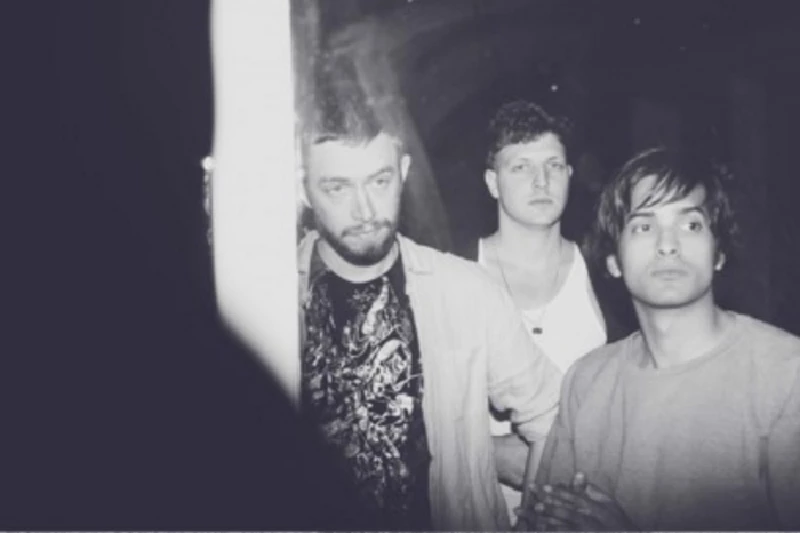
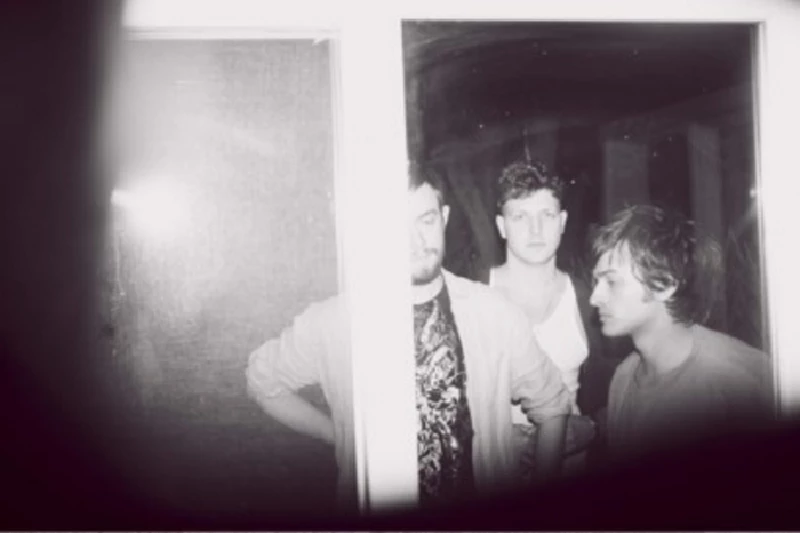
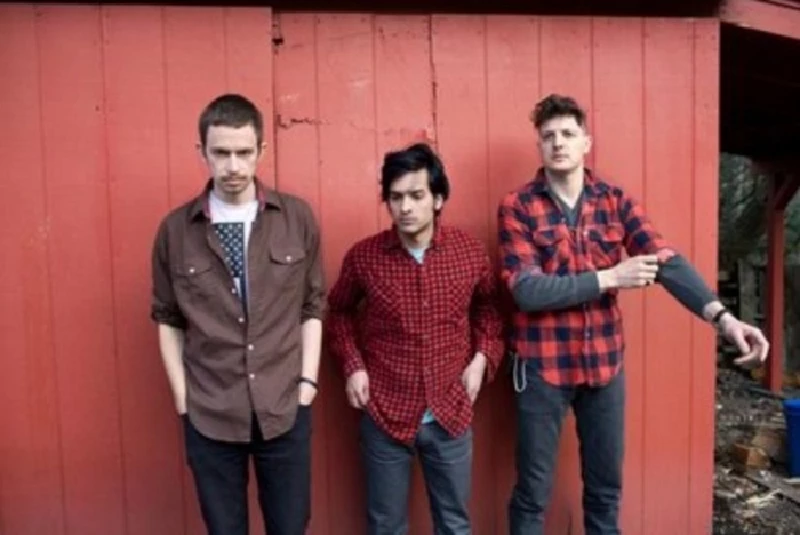
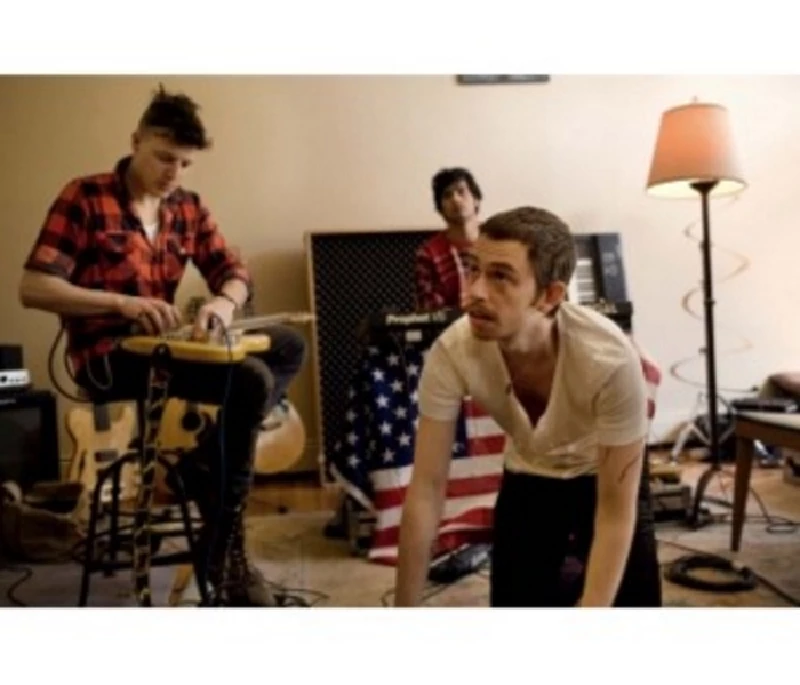
Visitor Comments:- |
| 360 Posted By: You clearly do, London, UK on 21 Oct 2010 |
|
I think with the macho bullshit in your step one, you're totally missing the point of punk. You probably also have a pretty limited view of what constitutes 'real music'. That's fine, we're all entitled to our opinions. Thanks so much for sharing yours with the world.
|
| 355 Posted By: who cares, Brooklyn, NY on 14 Oct 2010 |
|
Step One- Do not get castrated, or consume pseudo-estrogens.
Step Two- Listen to this WEAK, AWFUL DRIVEL, get angry about the crap that's being passed off as music.
Step Three- Pick up your instruments & show them how it's done.
|
live reviews |
|
Rescue Rooms, Nottingham, 12/10/2009 |
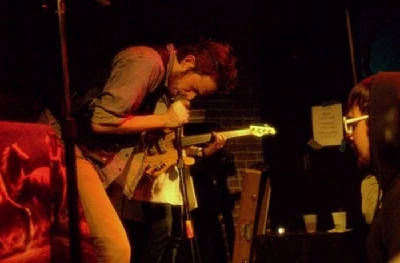
|
| Yeasayer have been among the few bands that I know I should listen to but… don’t. They emerged in 2007 with their critically praised album ‘All Hour Cymbals’, full of experimental sounds and eccentri |
| King's College, London, 20/8/2008 |
| ICA, London, 6/3/2008 |
soundcloud
reviews |
|
Amen and Goodbye (2016) |
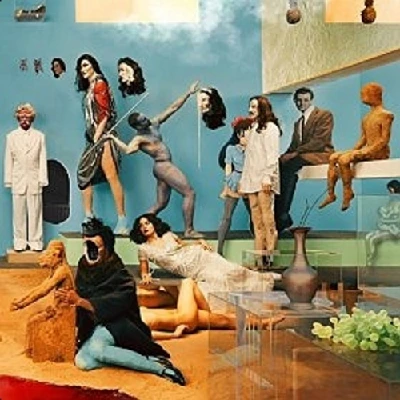
|
| Satisfying return-to-form from experimental Brooklyn-based psychedelic/pop act, Yeasayer. |
| Fragrant World (2012) |
| Odd Blood (2010) |
| All Hour Cymbals (2007) |
most viewed articles
current edition
Peter Doherty - Blackheath Halls, Blackheath and Palace Halls, Watford, 18/3/2025 and 21/3/2025Armory Show - Interview with Richard Jobson
Liz Mitchell - Interview
Deb Googe and Cara Tivey - Interview
Lauren Mayberry - Photoscapes
Max Bianco and the BlueHearts - Troubadour, London, 29/3/2025
Garfunkel and Garfunkel Jr. - Interview
Maarten Schiethart - Vinyl Stories
Clive Langer - Interview
Sukie Smith - Interview
previous editions
Heavenly - P.U.N.K. Girl EPBoomtown Rats - Ten Songs That Made Me Love....
Trudie Myerscough-Harris - Interview
Doris Brendel - Interview
Beautiful South - Ten Songs That Made Me Love...
Dwina Gibb - Interview
Kay Russell - Interview with Kay Russell
Pulp - Ten Songs That Made Me Love...
Barrie Barlow - Interview
Sound - Interview with Bi Marshall Part 1
most viewed reviews
current edition
Davey Woodward - Mumbo in the JumboNigel Stonier - Wolf Notes
Wings - Venus and Mars
Kate Daisy Grant and Nick Pynn - Songs For The Trees
Only Child - Holy Ghosts
Neil Campbell - The Turnaround
Philip Jeays - Victoria
Darkness - Dreams On Toast
Suzanne Vega - Flying With Angels
Charles Ellsworth - Cosmic Cannon Fodder
Pennyblackmusic Regular Contributors
Adrian Janes
Amanda J. Window
Andrew Twambley
Anthony Dhanendran
Benjamin Howarth
Cila Warncke
Daniel Cressey
Darren Aston
Dastardly
Dave Goodwin
Denzil Watson
Dominic B. Simpson
Eoghan Lyng
Fiona Hutchings
Harry Sherriff
Helen Tipping
Jamie Rowland
John Clarkson
Julie Cruickshank
Kimberly Bright
Lisa Torem
Maarten Schiethart